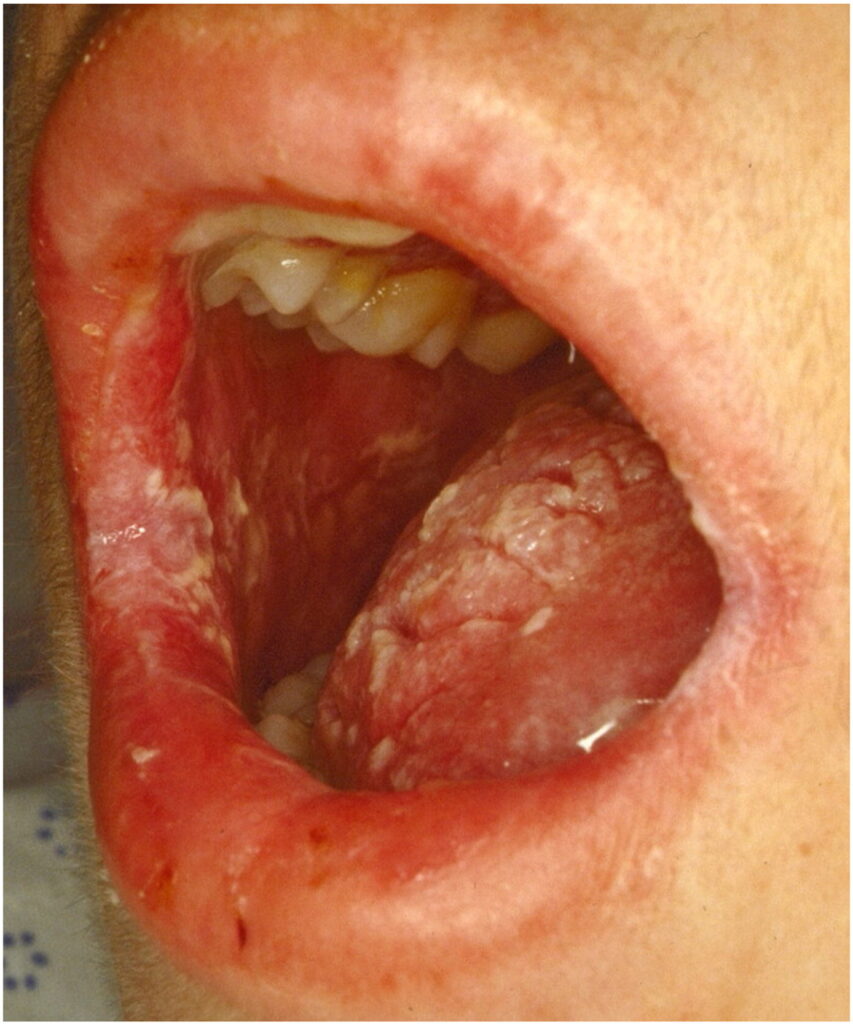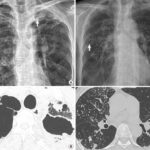Refractory oropharyngeal candidiasis (OPC) is characterized by persistent or recurrent infection of the oral and pharyngeal mucosa caused primarily by Candida species, despite adequate courses of standard antifungal therapy, typically azoles. It is a significant complication, particularly among immunocompromised populations, including individuals with HIV/AIDS, cancer, or those receiving immunosuppressive therapies.

Pathogenesis and Risk Factors
Mechanisms of Refractoriness
The persistence of OPC is driven by multiple biological mechanisms:
- Antifungal Resistance: Mutations in the ERG11 gene and upregulation of efflux pumps (CDR1, CDR2) diminish azole efficacy.
- Biofilm Formation: Candida biofilms protect fungal cells from host immunity and antifungal agents.
- Host Immune Dysfunction: Impaired T-cell function reduces mucosal defense mechanisms.
Predisposing Conditions
We identify several patient-specific risk factors associated with refractory OPC:
- Advanced HIV infection (CD4 count <200 cells/μL)
- Hematologic malignancies
- Organ transplantation
- Diabetes mellitus
- Prolonged corticosteroid or antibiotic use
- Nutritional deficiencies and xerostomia
Clinical Features and Diagnosis of Refractory Oropharyngeal Candidiasis
Symptoms to Recognize
Patients typically present with:
- Persistent white patches on the oral mucosa
- Erythematous, painful lesions
- Dysphagia or odynophagia
- Altered taste sensation
- Angular cheilitis
In refractory cases, symptoms are more severe and persistent, affecting quality of life.
Diagnostic Strategy
Effective diagnosis combines clinical evaluation with microbiological confirmation:
- Direct Microscopy: KOH preparation to visualize budding yeast or pseudohyphae.
- Culture and Sensitivity: Isolation of Candida species followed by antifungal susceptibility testing.
- Molecular Methods: PCR and sequencing to detect resistance-associated mutations.
- Biopsy: In cases of diagnostic uncertainty or to rule out malignancy.
Management Strategies for Refractory Oropharyngeal Candidiasis
Pharmacological Approaches
Alternative Antifungal Agents
When azole resistance is identified, therapeutic strategies include:
- Echinocandins: Caspofungin, micafungin, and anidulafungin inhibit β-1,3-glucan synthesis, effective against azole-resistant strains.
- Amphotericin B: Topical or systemic formulations for extensive disease, albeit with nephrotoxicity risks.
- Posaconazole or Voriconazole: Extended-spectrum azoles effective against some resistant Candida species.
- Itraconazole Solution: Offers better mucosal penetration compared to capsule formulations.
Treatment Duration and Monitoring
Prolonged therapy, often several weeks, is required. Regular monitoring includes clinical assessment and repeat cultures to ensure eradication.
Adjunctive and Supportive Measures
- Improved Oral Hygiene: Reduces fungal burden and biofilm accumulation.
- Management of Underlying Conditions: Optimize immune status (e.g., antiretroviral therapy in HIV patients).
- Nutritional Support: Address deficiencies that impair mucosal healing.
Role of Combination Therapy
In refractory cases, combining antifungal agents with different mechanisms of action may provide synergistic effects and prevent further resistance development.
Mechanisms of Antifungal Resistance in Candida Species
Resistance in Candida albicans and non-albicans species arises through:
- Target Enzyme Alteration: Mutations in ERG11 reduce azole binding.
- Efflux Pump Overexpression: Increased CDR1, CDR2, and MDR1 activity lowers intracellular antifungal concentrations.
- Biofilm-Associated Resistance: Cells within biofilms exhibit phenotypic resistance.
Understanding these mechanisms guides the selection of effective therapeutic agents and informs future drug development strategies.
Prognosis and Outcomes
Factors Influencing Prognosis
Several variables affect outcomes in refractory OPC:
- Degree of immunosuppression
- Type of Candida species involved
- Presence of antifungal resistance
- Adherence to prescribed therapy
Expected Clinical Course
With appropriate therapy adjustments, most patients achieve clinical resolution. However, those with ongoing immunosuppression may experience relapses requiring chronic suppressive therapy.
Future Directions in Refractory OPC Management
Novel Antifungal Agents
Several promising agents are under investigation:
- Ibrexafungerp: A novel glucan synthase inhibitor with oral bioavailability.
- Fosmanogepix: Targets Gwt1 enzyme involved in fungal cell wall maturation.
Immunotherapy and Vaccination
Efforts are underway to develop immunotherapeutic strategies and vaccines to enhance host resistance against Candida infections.
Personalized Treatment Approaches
Advances in genomics and proteomics offer opportunities for individualized therapy based on the specific resistance mechanisms of infecting strains.
Refractory oropharyngeal candidiasis remains a complex clinical entity requiring a comprehensive approach combining accurate diagnosis, aggressive antifungal therapy, supportive care, and management of underlying risk factors. By staying abreast of emerging treatments and understanding resistance patterns, we can significantly improve patient outcomes and reduce disease burden in vulnerable populations.

